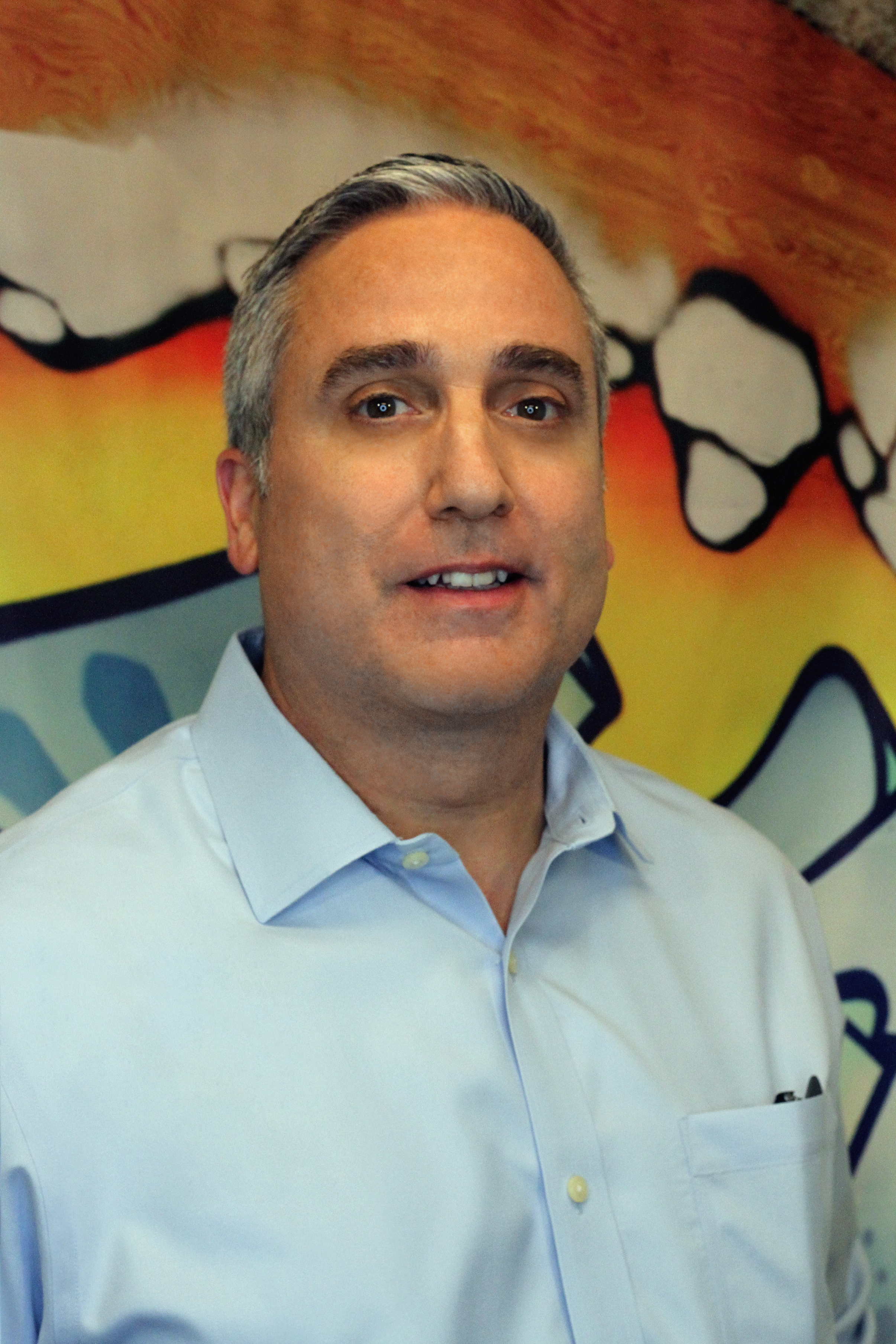
Joe DeCosmo
Technology Officer
Enova
Keynote Speaker – Thursday, September 16
Growing Through a Pandemic: How Resilience, Focus, and Data Drove Enova Forward During COVID
Like most companies, Enova had to quickly adjust and adapt to the emerging public health and economic crisis when the COVID pandemic hit. In spite of the crisis, Enova combined their data and analytics resources with a focused growth strategy to acquire two companies, take care of their customers and employees, and emerge a bigger and stronger company. In this talk, Joe will share some best practices and lessons learned from this tumultuous time.
Bio
Joe joined Enova in 2014. As Chief Analytics and Technology Officer, Joe leads a multi-disciplinary analytics team that provides end-to-end data and analytic services including data warehousing, business intelligence, business analytics, fraud, credit risk and marketing. His team supports the global online financial services offered by Enova International and delivers on-demand decision-making technology and real-time predictive analytics services to clients through the Enova Decisions® brand. He also oversees Enova’s technology team, leading tech operations, software engineering, IT and product management. Prior to working at Enova, he served as Director and Practice Leader of Advanced Analytics for Chicago-based West Monroe Partners. He has also held a number of executive positions at HAVI Global Solutions and the Allant Group. Joe received a B.A. in economics from Lewis University and an M.A. in economics from the University of Illinois at Chicago. He is Immediate Past-President of the Chicago Chapter of the American Statistical Association and is on the Advisory Board of the UIC College of Business Administration. Joe lives in the Chicago area with his wife and daughters. LinkedIn: https://www.linkedin.com/in/joe-decosmo-cao/

David Simchi-Levi
Engineering Systems
MIT
Head of MIT Data Science Lab
Keynote Speaker – Friday, September 17
Supply Chain Resiliency and the Need for Stress Tests
As hospitalizations decrease and vaccinations increase, some see the end of the COVID-19 pandemic somewhere on the horizon. With that, many of us in the data science community are analyzing “lessons learned” from the pandemic to better prepare and more efficiently and effectively respond to the next disaster. At the center of this discussion must be how to fix our supply chains to prevent disruptions where possible and to identify – before a disaster occurs – where vulnerabilities exist.
Bio
David Simchi-Levi is a Professor of Engineering Systems at MIT and serves as the head of the MIT Data Science Lab. He is considered one of the premier thought leaders in supply chain management and business analytics. His Ph.D. students have accepted faculty positions in leading academic institutes including U. of California Berkeley, Carnegie Mellon U., Columbia U., Duke U., Georgia Tech, Harvard U., U. of Illinois Urbana-Champaign, U. of Michigan, Purdue U. and Virginia Tech.
Professor Simchi-Levi is the current Editor-in-Chief of Management Science, one of the two flagship journals of INFORMS. He served as the Editor-in-Chief for Operations Research (2006-2012), the other flagship journal of INFORMS and for Naval Research Logistics (2003-2005). He is an INFORMS Fellow, MSOM Distinguished Fellow and the recipient of the 2014 INFORMS Daniel H. Wagner Prize for Excellence in Operations Research Practice; 2014 INFORMS Revenue Management and Pricing Section Practice Award; 2009 INFORMS Revenue Management and Pricing Section Prize; Ford 2015 Engineering Excellence Award, and 2020 INFORMS Impact Prize.
He was the founder of LogicTools which provided software solutions and professional services for supply chain optimization. LogicTools became part of IBM in 2009. In 2012 he co-founded OPS Rules, an operations analytics consulting company. The company became part of Accenture in 2016. In 2014, he co-founded Opalytics, a cloud analytics platform company focusing on operations and supply chain intelligence. The company became part of the Accenture Applied Intelligence in 2018. LinkedIn: https://www.linkedin.com/in/david-simchi-levi-3045026/
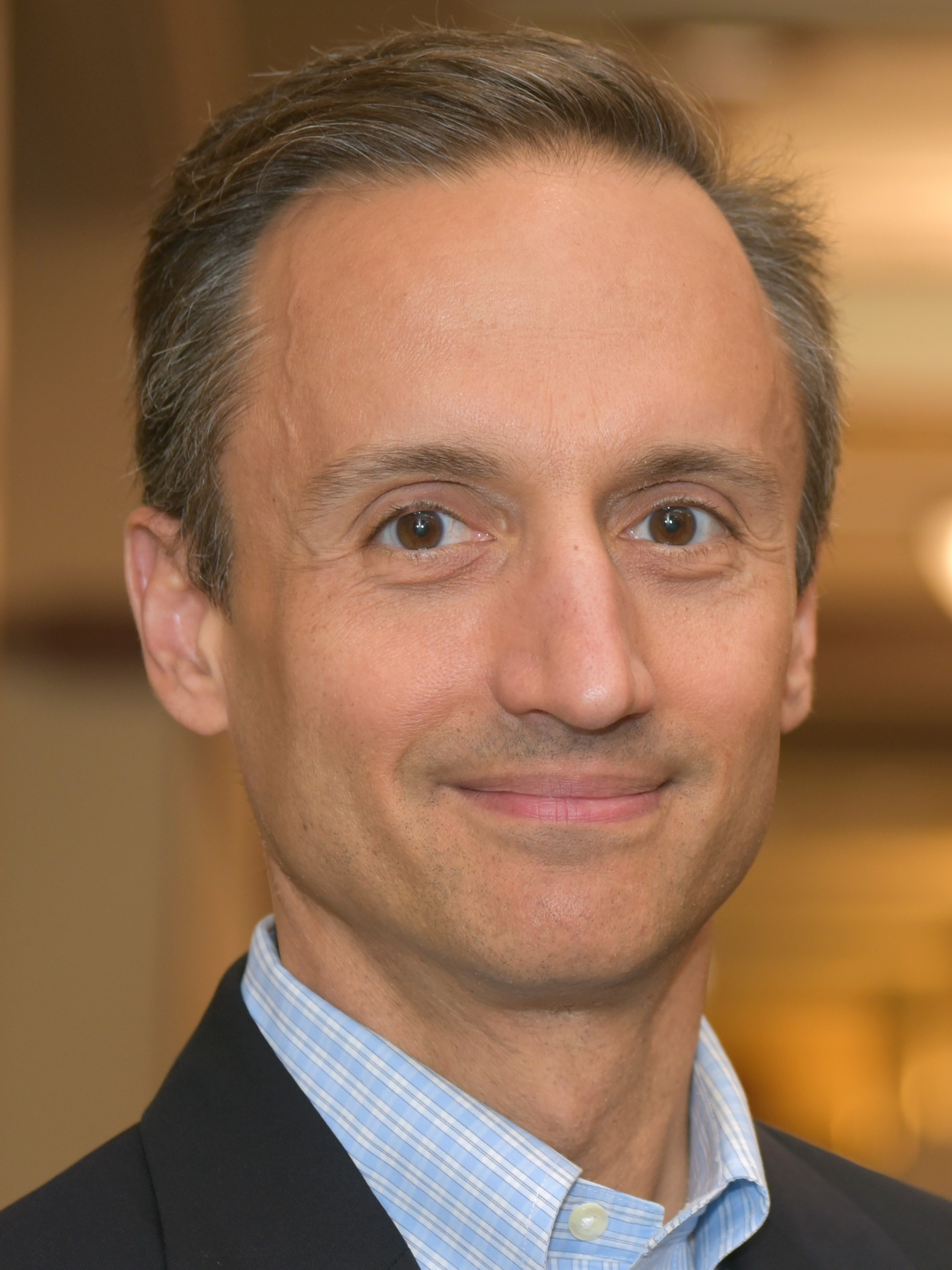
Anthony Lo Sasso
Economics Department
DePaul University
Racial and Ethnic Disparities in Access to Behavioral Health Services Among Medicaid Enrollees during the COVID Pandemic: Did Telehealth Level the Playing Field?
The COVID-19 pandemic has created unprecedented challenges for people with behavior health (BH) conditions and may widen the existing disparities in access to and receiving of BH services. This study, conducted by Binh Nguyen, Qinli Ma, Eric Bailly, Anthony LoSasso, and Winnie Chi assessed racial disparities in access and utilization of BH services and the changes during the pandemic among Medicaid population.
Bio
Anthony Lo Sasso is Professor and Driehaus Fellow in the Economics Department at DePaul University in Chicago. His research spans several dimensions of health and labor economics, health policy, and health services and outcomes research. He is keenly interested in how government policies affect private sector decisions. After receiving an Agency for Healthcare Research and Quality (AHRQ) 5-year Independent Scientist Award entitled “Workplace Health Benefits and Employee Health,” his research explored the impact of the State Children’s Health Insurance Program on insurance among children and the extent to which public coverage may have “crowded out” private coverage of children; how community rating provisions in state health insurance markets affect health insurance coverage; and how the availability of safety net health care services affects the willingness of firms to offer health insurance and the willingness of employees to take-up health insurance when it is offered.
An area of particular interest for Lo Sasso is the effects of health insurance benefit design on health care utilization and health outcomes. This work includes an AHRQ-funded research grant to study so-called narrow network insurance plans; a National Institute of Mental Health (NIMH) funded study to examine the impact of an expansion of mental health benefits on cost and quality of care at a large manufacturing firm; and ongoing work examining the effects of high deductible health insurance on health care use. Additionally, he served as co-investigator on an NIH-funded study examining the effects of corporate wellness programs on use of preventive services and health outcomes.
Until recently (2012-2019), Lo Sasso served as the Executive Director of the American Society of Health Economists (ASHEcon). With training in labor and health economics and extensive experience studying the effects of insurance in both the private and public sectors, he is a nationally recognized leader in the field. LinkedIn: https://www.linkedin.com/in/anthony-losasso-49176110/

Sanjay Mehrotra
Using Data Science, Machine Learning and Decision Analytics in Transplant Policies
This presentation includes examples of several yearlong efforts in the use of operations engineering approaches to improving transplant policies in the areas of kidney and liver allocation, distribution and reducing kidney discards. This work involved real-life data analysis using classical and newer statistical and machine learning tools. It also involved developing optimization models and simulation. Finally, one of the projects influenced liver and subsequently kidney allocation policy changes for equitable distribution of deceased donor kidneys and livers. Time permitting results will also be discussed based on a second related project on reducing kidney discards in the national allocation system.
Bio
Sanjay Mehrotra is a Professor of Industrial Engineering and Management Sciences at Northwestern University. He is a Fellow of the Institute for Operations Research and Management Sciences (INFORMS), and will chair the INFORMS Fellow committee in 2022. He is the founding director of the Center for Engineering and Health, which is a part of the Institute for Public Health and Medicine at Northwestern University. He is an expert in methodologies for decision making under uncertainty, and its applications to problems in Health Systems Engineering. He has made major contributions to the areas of Health Systems Engineering, Operations Research, and Optimization Methodologies, for which he is known internationally. His health systems engineering work encompasses a wide range of topics that include predictive modeling, hospital operations modeling, and policy modeling while using and developing modern operations research tools. He has been the department editor for the Optimization department and Health Systems Engineering department for the journal IIE-Transactions. He is also the founding co-Editor of Healthcare section for the journal Naval Research Logistics. In the Optimization area Mehrotra is widely known for his predictor-corrector method for solving continuous optimization problems. He has been INFORMS Optimization Society chair, and has also served on INFORMS Board of Directors. LinkedIn: https://www.linkedin.com/in/sanjay-mehrotra-78540bb/

Scott Nestler, CAP
Safely Seating Fans, Using Combinatorial Optimization
During the COVID-19 pandemic in 2020, venue managers realized that they were going to have to figure out how to safely seat fans in stadiums, arenas, and theaters. While it is relatively simple to produce a heuristic seating plan that keeps groups who live together (i.e. immediate families or roommates) separated by some distance, such plans are likely not optimal in terms of maximizing attendance, revenue, or other quantities of interest. Using combinatorial optimization, the presenter, along with a colleague and former student, developed a model for use at the University of Notre Dame. It was later commercialized and used by others, including professional sports teams. The Software as a Service (SaaS) offering uses an R Shiny front-end with an open-source solver, and is based in an Amazon Web Services (AWS) Elastic Cloud Compute (EC2) instance.
Bio
Scott Nestler is the Director, Statistics & Modeling, at Accenture Federal Services. Previously, he was the Academic Director of the MS in Business Analytics program in the Mendoza College of Business at the University of Notre Dame. Before that, he served in the U.S. Army as an operations research analyst with teaching assignments at the U.S. Military Academy at West Point and the Naval Postgraduate School, and leadership roles on the Army Staff and at the Center for Army Analysis. He enjoys using analytics in sports and is the co-author of the forthcoming 2nd Edition of “Mathletics: How Gamblers, Managers, and Fans Use Mathematics in Sports,” with Wayne Winston and Kostas Pelechrinis. He is also the Managing Partner of SafeSeating Solutions, LLC. LinkedIn: https://www.linkedin.com/in/scottnestler/
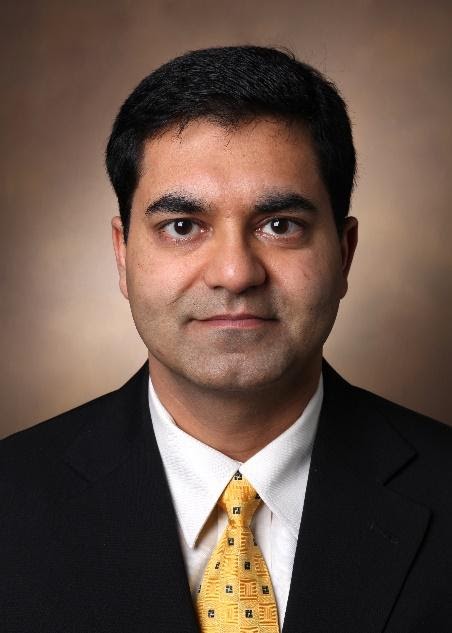
Vikram Tiwari, PhD
Anesthesiology, Biomedical Informatics, Biostatistics
and Senior Director
Surgical Analytics
Vanderbilt University Medical Center
Operations Research Applications for Hospital Capacity Planning and Management during COVID-19 Pandemic, and Lessons for the Post-Pandemic Period
Rapid deployment of Operations Research (OR) techniques played a key role during the earlier phases of the COVID-19 pandemic for capacity management and capacity reservation decisions at hospitals. Analytical modeling and analytical thinking proved critical in predicting hospital census of COVID positive patients. Lessons learned that are applicable for the post-pandemic period include the challenge of developing models with incomplete and unknown information, and the tradeoff between simpler yet accurately parameterized models vs. complex models with questionable parametric values. Another lesson learnt is the unique contribution OR folks can bring to an analytics-heavy multidisciplinary team comprised of epidemiologists, biostatisticians, and healthcare practitioners.
Bio
Vikram Tiwari, PhD, is associate professor of anesthesiology, biomedical informatics, biostatistics and management at Vanderbilt University School of Medicine and Vanderbilt University, as well as senior director, surgical analytics, at Vanderbilt University Hospital.
He has a doctorate in decision science and operations management from Indiana University Bloomington and has an engineering degree and an MBA. His research focuses on improving efficiencies in the delivery of healthcare, as well as capacity management and planning. His work on predicting daily surgical case volume was nominated for Best of Abstracts at the 2013 American Society of Anesthesiologists conference. He is the winner of the ‘Best in OR Business Award 2020’ presented at the OR Business Management conference. He has published extensively in medical, business and engineering journals. LinkedIn: https://www.linkedin.com/in/vikram-tiwari/
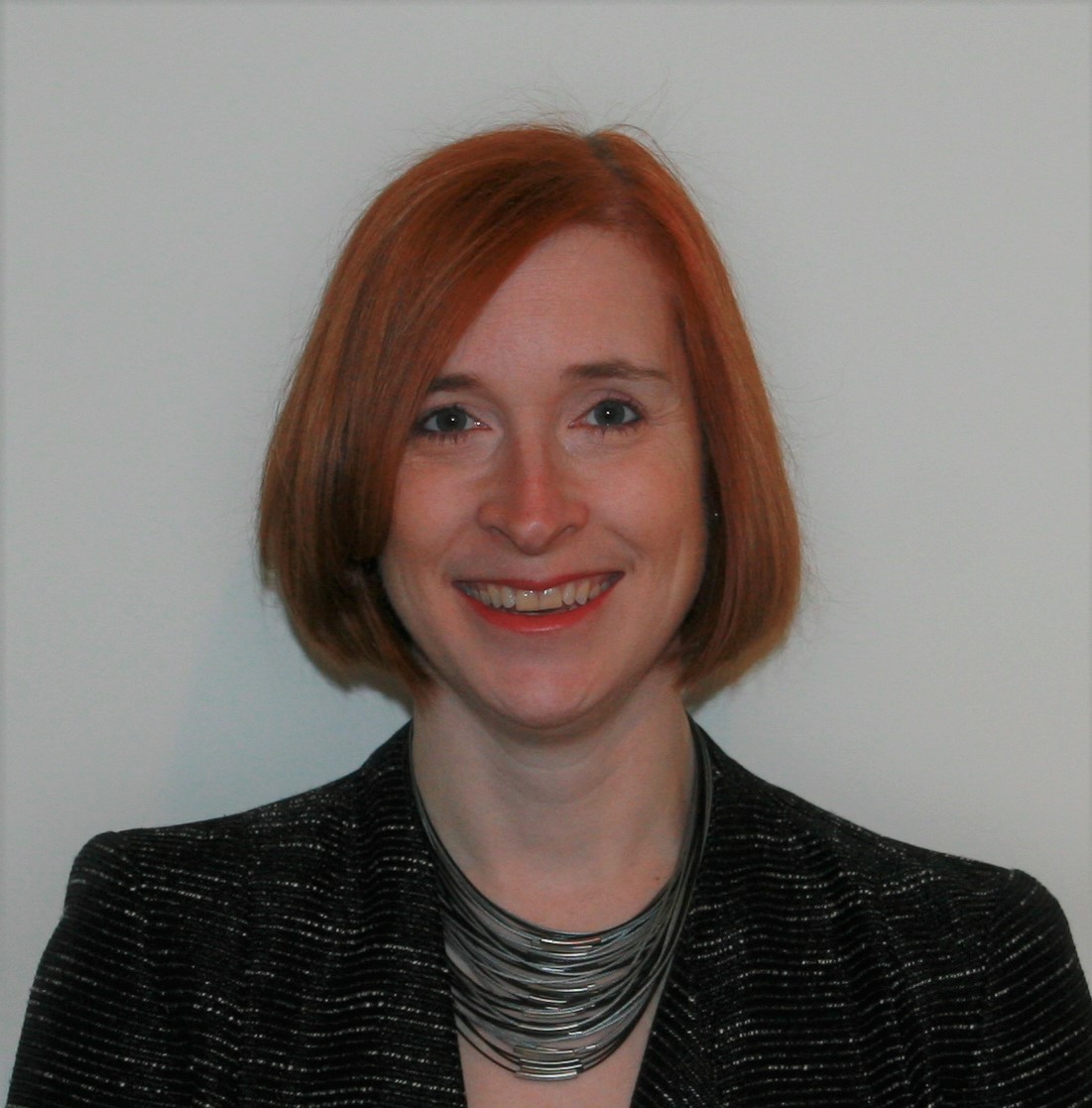
Carol DeZwarte, CAP

Crystal Son

Anna Nagurney
Panel Discussion – From Surviving to Thriving in a New Normal: Resilience through Analytics
The panelists from academia and industry offer perspective on the impacts of pandemic on their organization, how they adjust their strategies and operations during the pandemic using analytics (survive) and their plans to thrive after the pandemic. This session will be moderated by Sina Ansari, DePaul University and Ahsan Mumtaz, Human Development Foundation North America.
Panelists:
Carol DeZwarte is a data science lead at Convoy, a tech startup working to modernize the freight industry and improve its sustainability. Her path to the tech industry included 15 years building supply chain and aviation simulations for government clients including the US Air Force, Defense Logistics Agency, NASA, and the FAA. Carol’s holds a BS in ORIE from Cornell University, a MS in Systems Engineering from Georgia Tech, a PMP certification, and the INFORMS CAP credential. LinkedIn: https://www.linkedin.com/in/caroldezwarte/
Crystal Son, MPH is a Director of Applied Data Science and Healthcare Analytics at Civis. She oversees active engagements as well as new product development for clients in Civis’ healthcare portfolio. She began her career at the New York City Department of Public Health & Mental Hygiene (NYCDOHMH) in the office of Diabetes Prevention & Control, where she served on a team of epidemiologists and data specialists that analyzed Hemoglobin A1c laboratory data and translated this into on-the-ground diabetes management tools for healthcare providers and patients. She then went on to become an Infection Prevention epidemiologist at Memorial Sloan-Kettering Cancer Center. She graduated from Williams College with a B.A. in History and Columbia University with a Masters in Public Health with a concentration in Epidemiology. She is a certified Project Management Professional (PMP) and certified hospital Infection Prevention Practitioner (IPP). LinkedIn: https://www.linkedin.com/in/crystalson/
Anna Nagurney is the Eugene M. Isenberg Chair in Integrative Studies at the Isenberg School of Management at the University of Massachusetts Amherst and the Director of the Virtual Center for Supernetworks, which she founded in 2001. She holds ScB, AB, ScM and PhD degrees from Brown University in Providence, RI. She is the author/editor of 15 books, more than 200 refereed journal articles, and over 50 book chapters. Professor Nagurney has been a Fulbrighter twice (in Austria and Italy), was a Visiting Professor at the School of Business, Economics and Law at the University of Gothenburg in Sweden, and was a Distinguished Guest Visiting Professor at the Royal Institute of Technology (KTH) in Stockholm. She was a Visiting Fellow at All Souls College at Oxford University during the 2016 Trinity Term and a Summer Fellow at the Radcliffe Institute for Advanced Study at Harvard in 2017 and 2018. Anna has held visiting appointments at MIT and at Brown University and was a Science Fellow at the Radcliffe Institute for Advanced Study at Harvard University in 2005-2006. She has been recognized for her research on networks with the Kempe Prize from the University of Umea, the Faculty Award for Women from the US National Science Foundation, the University Medal from the University of Catania in Italy, the 2019 Constantin Caratheodory Prize, and the 2020 Harold Larnder Prize, and was elected a Fellow of the RSAI (Regional Science Association International) as well as INFORMS (Institute for Operations Research and the Management Sciences) and the Network Science Society, among other awards. She has also been recognized with several awards for her mentorship of students and her female leadership with the WORMS Award, for example. Her research has garnered support from the AT&T Foundation, the Rockefeller Foundation through its Bellagio Center programs, the Institute for International Education, and the National Science Foundation. She has given plenary/keynote talks and tutorials on 5 continents. She is an active member of professional societies, including INFORMS, POMS, and RSAI.
Anna’s research focuses on network systems from transportation and logistical ones, including supply chains, to financial, economic, social networks and their integration, along with the Internet. She studies and models complex behaviors on networks with a goal towards providing frameworks and tools for understanding their structure, performance, and resilience and has contributed also to the understanding of the Braess paradox in transportation networks and the Internet. She has also been researching sustainability and quality issues with applications ranging from pharmaceutical and blood supply chains to perishable food products and fast fashion to humanitarian logistics. She has advanced methodological tools used in game theory, network theory, equilibrium analysis, and dynamical systems. She was a Co-PI on a multi-university NSF grant with UMass Amherst as the lead: Network Innovation Through Choice, which was part of the Future Internet Architecture (FIA) program and was recently a Co-PI on an NSF EAGER grant. She has been very active in the pandemic responding to many media requests. LinkedIn: https://www.linkedin.com/in/annanagurney/

Impactful OR/Analytics Prize Presentations
INFORMS Chicago Chapter is sponsoring an award competition to encourage students as well as scholars from academia and industry to have an impact on their community, infused with OR/Analytics methods. The winners of this year’s competition will present their impactful work in two categories: (1) Academic / Researcher of the year, and (2) Student of the year. The winners are listed below.
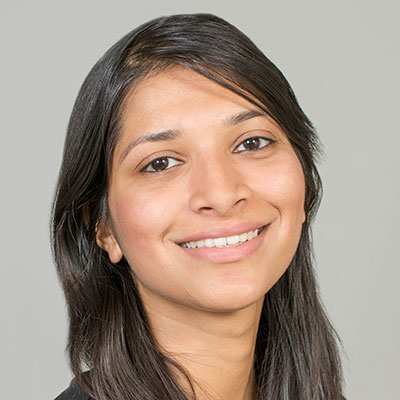
Khadija Ali Vakeel
Business Analytics, Driehaus College of Business,
DePaul University
Researcher of the Year
Network Effects on Online Retail-based Platforms
Online retail-based platforms such as Alibaba and Google Shopping are partnership networks that use the Internet to bring retailers and customers together. One of the benefits of the online platforms is network effects, in which customers can purchase from multiple retailers, giving rise to a unique network. This study explores how online platforms and retailers benefit from network effects. The implications are for the managers of online platforms who decide strategies for recruiting, managing, promoting retailers in the network.
Bio
Khadija Ali Vakeel is an assistant professor in the Department of Management and
Entrepreneurship in the Driehaus College of Business at DePaul University. She
completed her post-doctoral fellowship at Spiegel Digital and Database Research
Center at Northwestern University and earned a doctoral degree in Information
Systems Management. Her current research examines multi-sided platforms where
she collaborates with numerous industry partners to gain deeper insights into
consumer behavioral data. Her research appears in top-tier journals, including
the Journal of Advertising, Journal of Service Management, among others. Her
work has won the best paper award at the Journal of Advertising and was
nominated for the best paper at international conferences.
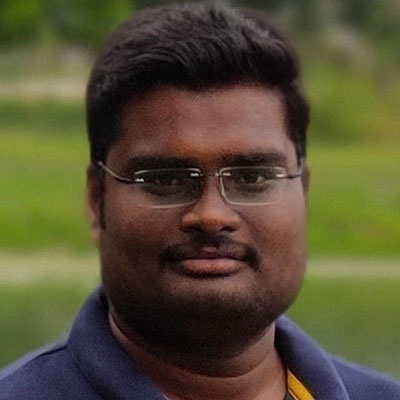
Dheeban Kumar Srinivasan Sampathi
Northern Illinois University
Student of the Year
Scrap Reduction using Mixed Integer Linear Programming
Nobelus supplies its clients with laminate films for printing and packaging applications. They cut big film rolls into different sizes as ordered by customers. This project upgrades its manual pattern planning operation to an automatic, algorithmic, OR-based one. We create a 2D cutting stock model and a column generation algorithm to minimize scrapped material. With waste being reduced by 50%, Nobelus can increase its profit margin, reduce order lead time, respond to demand uncertainty quickly, lower its environmental impact, and sustain its growth during the covid-19 pandemic. The solution can be scaled and applicable to paper, wood, packaging, and other manufacturing industries.
Bio
Dheeban Kumar Srinivasan Sampathi is a Ph.D. student in Industrial and Systems Engineering (ISYE) at Northern Illinois University (NIU). He did his Masters in ISYE at NIU and graduated in the summer, 2021. He was recently awarded the Outstanding Graduate Student for his academic achievements by the department and the Graduate School. He also completed his graduate thesis on developing a goal programming formulation for scheduling a batch processing machine with multiple objectives. The formulation outperforms other formulations from the literature both in terms of run time and solution quality. He also developed a column generation approach for the formulation developed and implemented some symmetry-breaking constraints to expeditiously solve the full formulation to find a good quality solution in a short time. Areas of interest: Optimization, Simulation, Lean, Quality, Data Analytics.

